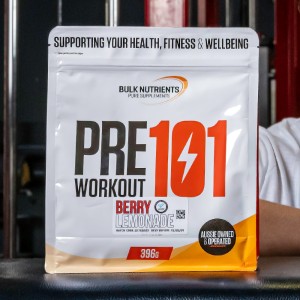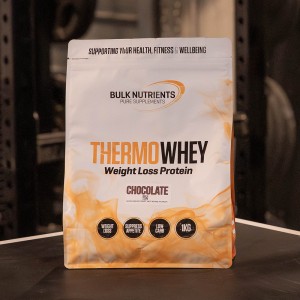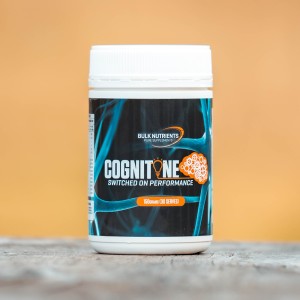How to Get the Most Out of Your Caffeine

How caffeine effects performance
For years, caffeine has been used as an aid to enhance physical performance. Even though the body of literature supporting caffeine’s effects on physical and mental performance, recovery, and hydration is extensive, making sense of it can be challenging.
Let’s look at the evidence!
Over the years, multiple doses of caffeine have been proposed to be effective. For instance, A study by Graham and Spriet examined the exercise responses of well-trained endurance athletes to various doses of caffeine at 3, 6, and 9 mg/kg to evaluate the impact of it on exercise metabolism and endurance capacity. Subjects were instructed to take a caffeine capsule or a placebo before a bout of exercise (run to exhaustion at 85% VO2max). The authors reported that endurance was enhanced with both the 3 and 6 mg/kg dose of caffeine, whereas no significant effects were seen with additional consumption (9 mg/kg dose). Even though some studies have shown performance improvements with higher doses than 6 mg/kg, the evidence is fairly limited.
On the other hand, research on the effects of caffeine on strength performance is still in its infancy and the available data is mixed. An interesting study conducted by Woolf and colleagues instructed subjects to perform 2 exercises (chest press and leg press) to muscular failure separated by 60 seconds of rest and a Wingate test. Results showed an increase in performance during the chest press and the Wingate test after consuming a moderate dose of caffeine at 5 mg/kg.
A similar study by Beck et al. (2006), also studied the effects of caffeine supplementation on strength and muscular endurance. Subjects were tested for upper and lower body strength, as well as repetitions to exhaustion. Subjects were instructed to consume 201 mg (~2.1-3.0 mg/kg) of caffeine one hour before testing. Results showed significant performance increases in the upper body (but not the lower body) forstrength and endurance.
Consulting the literature as a whole, caffeine supplementation is likely to enhance high-intensity exercise (including team sports) when consumed in low to moderate doses (3-6 mg/kg) 1-hour before exercise. While less supported by the research, it is likely that weight training performance following consumption of caffeine in the range of 2-5 mg/kg will improve via improvements in strength, endurance, or both. Most studies show no additional benefits to consuming caffeine doses above 6mg/kg.
Bonus tip: Caffeine supplementation seems to be superior to consuming coffee (or other caffeinated beverages) for performance enhancement.
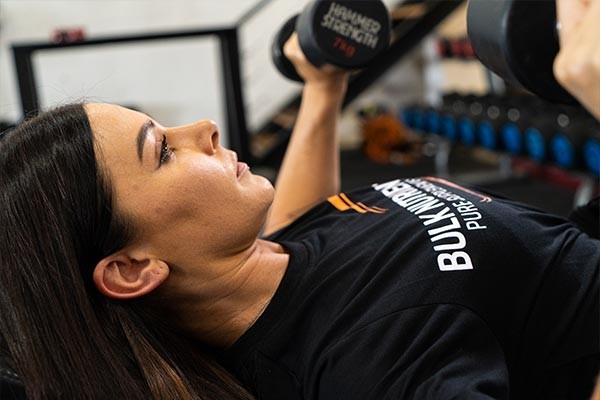
How caffeine effects brain function
It has been proposed that caffeine supplementation may have stronger effects on areas other than metabolism and muscle. Although evidence of caffeine’s influence on mood and psychomotor performance is mixed at times, the overall research is promising.
Caffeine is believed to work as a stimulant benefiting motor and cognitive functions, particularly during mental and physical fatigue. For instance, Lieberman et al. (2002), studied the effects of moderate doses of caffeine on sleep deprivation and exposure to stress on cognitive performance. Subjects (Navy Seals) were assigned different doses of caffeine at random in either 100mg, 200mg, 300mg, or a placebo after 72 hours of sleep deprivation. The authors had subjects perform tests including vigilance, reaction time, working memory, and motor learning and memory. As expected, caffeine (200 to 300mg) significantly improved vigilance, reaction time, and alertness. Even though no significant advantage was seen from consuming 300mg (compared to 200mg), a 200mg dose was indeed superior to 100mg (no better than a placebo). Such findings suggest that 200mg of caffeine supplementation seems to be optimal in improving cognitive performance including learning and memory when exposed to stress and limited sleep.
Moreover, another study by Hogervorst and colleagues had trained cyclists (who were caffeine consumers) to perform a 150 minute 60% VO2 max trial followed by 5 minutes of rest and then a ride to exhaustion at 75% VO2 max, for 3 days. Subjects were told to consume either a commercially available food bar containing 100mg of caffeine, a non-caffeinated bar, or flavoured water. Findings indicated that when the caffeinated food bar was taken, concentration was improved, as well as faster response speed and detection, and rapid visual test complex during both moderate-intensity cycling (60% VO2 max) and after time to exhaustion.
It is important to mention that such findings are of big importance for high-level sports performers since improvements in cognitive parameters like concentration, vigilance and alertness are essential in most sports. In conclusion, caffeine (or to a lesser extent caffeinated products), seems to significantly improve both physical and cognitive abilities during exercise and after exercise. The overall body of evidence suggests that a dose of 200mg of a caffeine supplement is appropriate for optimal improvements in cognitive parameters since higher doses don’t demonstrate additional improvements.

Coffee/caffeine & energy intake
Caffeine (and caffeinated products) consumption has gained massive popularity over the last two decades. However, its potential to influence appetite and energy intake is still uncertain.
An interesting and thorough review by Schubert and colleagues aimed to answer the following 4 questions to clarify the role of caffeine and caffeinated beverages in energy regulation and appetite:
- Does de/caffeinated coffee consumption influence acute ad libitum energy intake or macronutrient composition?
- Does caffeine (pure) consumption influence acute ad libitum energy intake or macronutrient composition?
- Does caffeine or de/caffeinated coffee influence acute gut physiology via changes in gastric emptying and secretion of gut hormones?
- Does caffeine or de/caffeinated coffee influence perceptual measures of appetite?
Results from this review showed that coffee consumption only marginally influences total daily energy intake (-55 calories) and does not significantly influence single meal energy intake or macronutrient distribution. Moreover, it was not suggested that caffeine alters gastric emptying, gut hormone secretion, or appetite perception in a way that would significantly influence energy intake.
Although there is some evidence for potential mechanisms by which coffee/caffeine can influence body weight (thermic effect of caffeine, gastrointestinal tract modification, & attenuation of diet-induced elevated hepatic insulin resistance) the authors came to the conclusion that currently there isn’t sufficient evidence to determine caffeine’s influence on appetite perception.
Research reviewing the effects of coffee/caffeine on energy intake is quite limited, and uncertain. Although caffeine appears to influence appetite alterations and energy intake, the limitations (dosage discrepancies, volume of caffeine content, and the number of studies) of the current data, make it difficult to isolate and discover a clear pattern or dose-response over short and long periods on energy intake and appetite regulation.

Practical applications of caffeine
- Quality evidence suggests that caffeine is beneficial for high-intensity exercise performance, particularly over prolonged periods.
- Evidence, while mostly positive, is less convincing when it comes to strength and power performance.
- Studies show that pure caffeine in an anhydrous state (powder or capsule) is more powerful than coffee, given the same amount of caffeine.
- While research demonstrates caffeine ingestion 15-30 minutes prior to exercise can enhance performance, caffeine ingestion should happen 60 min prior to exercise to ensure optimal absorption.
- A dose of 3-6mg of caffeine per kilogram of body weight seems to be the optimal consumption range, with limited evidence supporting higher doses.
- Caffeine can be used to enhance cognitive performance (alertness, vigilance, working memory, and motor learning) during times of exhaustive exercise where extreme focus is essential (competition).
- At this stage, the research does not suggest that caffeine consumption reliably influences appetite or ad libitum energy intake.
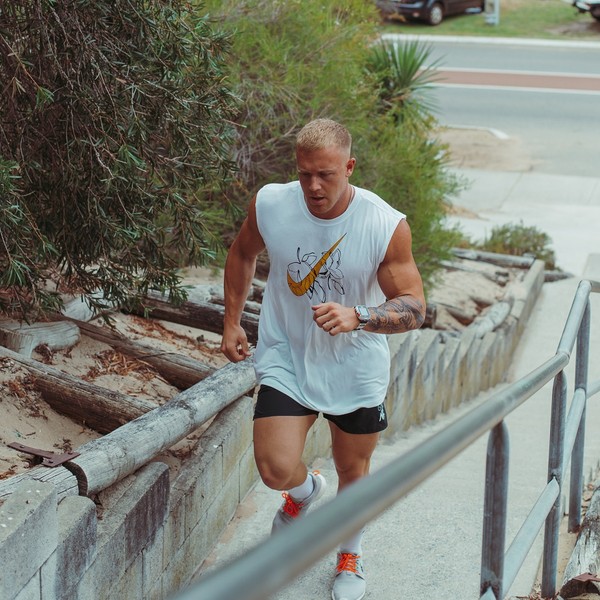
Jackson Peos
Jackson Peos has completed a PhD at the University of Western Australia, and has a straightforward approach to nutrition and supplements.
He's completed his BSc in Sports Science, and Exercise & Health, and his BSc (Hons) in Exercise Physiology.
References:
- Goldstein, E.R., Ziegenfuss, T., Kalman, D. et al. International society of sports nutrition position stand: caffeine and performance. J Int Soc Sports Nutr 7, 5 (2010).
- Graham TE, Spriet LL. Metabolic, catecholamine, and exercise performance responses to various doses of caffeine. J Appl Physiol (1985). 1995 Mar;78(3):867-74. doi: 10.1152/jappl.1995.78.3.867. PMID: 7775331.
- Graham TE, Hibbert E, Sathasivam P. Metabolic and exercise endurance effects of coffee and caffeine ingestion. J Appl Physiol (1985). 1998 Sep;85(3):883-9. doi: 10.1152/jappl.1998.85.3.883. PMID: 9729561.
- Woolf K, Bidwell WK, Carlson AG. The effect of caffeine as an ergogenic aid in anaerobic exercise. Int J Sport NutrExercMetab. 2008 Aug;18(4):412-29. doi:10.1123/ijsnem.18.4.412. PMID: 18708685.
- Spriet LL. Caffeine and performance. Int J Sport Nutr. 1995 Jun;5 Suppl:S84-99. doi: 10.1123/ijsn.5.s1.s84. PMID: 7550260.
- Lieberman HR, Tharion WJ, Shukitt-Hale B, Speckman KL, Tulley R. Effects of caffeine, sleep loss, and stress on cognitive performance and mood during U.S. Navy SEAL training. Sea-Air-Land. Psychopharmacology (Berl). 2002 Nov;164(3):250-61. doi: 10.1007/s00213-002-1217-9. Epub 2002 Sep 5. PMID: 12424548.
- Hogervorst E, Bandelow S, Schmitt J, Jentjens R, Oliveira M, Allgrove J, Carter T, Gleeson M. Caffeine improves physical and cognitive performance during exhaustive exercise. Med Sci Sports Exerc. 2008 Oct;40(10):1841-51. doi: 10.1249/MSS.0b013e31817bb8b7. PMID: 18799996.
- Hursel R, Viechtbauer W, Dulloo AG, Tremblay A, Tappy L, Rumpler W, Westerterp-Plantenga MS. The effects of catechin rich teas and caffeine on energy expenditure and fat oxidation: a meta-analysis. Obes Rev. 2011 Jul;12(7):e573-81. doi: 10.1111/j.1467-789X.2011.00862.x.Epub 2011 Mar 2. PMID: 21366839.
- Gavrieli A, Yannakoulia M, Fragopoulou E, Margaritopoulos D, Chamberland JP, Kaisari P, Kavouras SA, Mantzoros CS. Caffeinated coffee does not acutely affect energy intake, appetite, or inflammation but prevents serum cortisol concentrations from falling in healthy men. J Nutr. 2011 Apr 1;141(4):703-7. doi: 10.3945/jn.110.137323. Epub 2011 Feb 23. PMID: 21346100.
- Kelly L Johnston, Michael N Clifford, Linda M Morgan, Coffee acutely modifies gastrointestinal hormone secretion and glucose tolerance in humans: glycemic effects of chlorogenic acid and caffeine, The American Journal of Clinical Nutrition, Volume 78, Issue 4, October 2003, Pages 728–733, https://www.sciencedirect.com/science/article/pii/S0002916522033810
- Lecoultre V, Carrel G, Egli L, Binnert C, Boss A, MacMillan EL, Kreis R, Boesch C, Darimont C, Tappy L. Coffee consumption attenuates short-term fructose-induced liver insulin resistance in healthy men. Am J Clin Nutr. 2014 Feb;99(2):268-75. doi: 10.3945/ajcn.113.069526. Epub 2013 Nov 20. PMID: 24257718.
- Hulston CJ, Jeukendrup AE. Substrate metabolism and exercise performance with caffeine and carbohydrate intake. Med Sci Sports Exerc. 2008 Dec;40(12):2096-104. doi: 10.1249/MSS.0b013e318182a9c7. PMID: 18981939.
- Beck TW, Housh TJ, Schmidt RJ, Johnson GO, Housh DJ, Coburn JW, Malek MH. The acute effects of a caffeine-containing supplement on strength, muscular endurance, and anaerobic capabilities. J Strength Cond Res. 2006 Aug;20(3):506-10. doi: 10.1519/18285.1. PMID: 16937961.
- Schubert, Matt & Irwin, Christopher & Carpenter, Rebekah & Clarke, Holly & Allegro, Deanne & Desbrow, Ben. (2017). Caffeine, coffee, and appetite control: a review. International Journal of Food Sciences and Nutrition. 68. 1-12. 10.1080/09637486.2017.1320537.
Related Blogs

How to Make Your Own Pre Workout Supplement
Posted by Nick Telesca
Estimated reading time: 12 minutes

Caffeine and Creatine: Take Both, but Not Together?
Posted by Jackson Peos
Estimated reading time: 5 minutes
